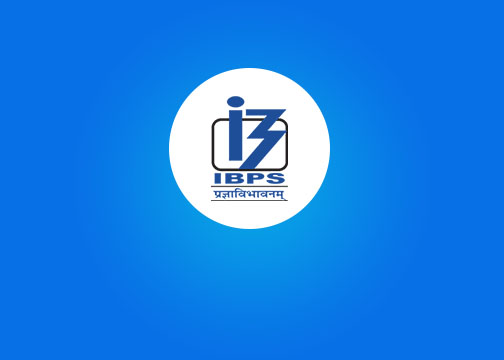Public Sector Banking has become an illustrious career option in current times as it comes with the promise of attractive salary, perks, job security, fast growth and good work-life balance. Government of India had set up Personnel Selection Services (PPS) in 1975 for recruitment of probationary officers and clerks to all public-sector banks. PSS was later changed to Institute of Banking Personnel Selection (IBPS) in 1984 as per the mandate of Reserve Bank of India (RBI). In 2011, IBPS started the Common Written Examination (CWE) for recruiting officers and clerks in Indian Bank and accepts online application through its official website. The IBPS CWE,earlier known as the IBPS Bank PO exam has been conducted every year since then.
The Institute of Banking Personnel Selection conducts the IBPS PO Bank Exam which is your gateway to the much sought after bank jobs. IBPS provides its services to all Public-Sector Banks, SBI, Associate Banks of SBI, RBI, NABARD, SIDBI, LIC u0026amp; Insurance companies and other Banks which are regular members of the IBPS society.
IBPS introduced separate sectional timing for each sections in preliminary exam. The IBPS PO exam for hiring candidates will be based on an online written exam in two parts: Tier 1 or IBPS Preliminary Exam and Tier 2 or IBPS Mains Exam. This examination is followed by a face-to-face interview process.
The IBPS PO Examination is a competitive exam conducted by the Institute of Banking Personnel Selection (IBPS) to recruit Probationary Officers (PO) or Management Trainees (MT) in various public sector banks in India. It is one of the most sought-after exams for those aspiring to work in the banking sector.
Key Details of the IBPS PO Exam:
1. Exam Structure
The IBPS PO exam is held in three phases:
- Preliminary Examination:
- Duration: 1 hour
- Sections:
- English Language: 30 questions
- Quantitative Aptitude: 35 questions
- Reasoning Ability: 35 questions
- Total Questions: 100 questions
- Total Marks: 100 marks
- Negative Marking: 0.25 marks for every wrong answer
- Main Examination:
- Duration: 3 hours 30 minutes
- Sections:
- Reasoning and Computer Aptitude: 45 questions (60 marks)
- General/Economic/Banking Awareness: 40 questions (40 marks)
- English Language: 35 questions (40 marks)
- Data Analysis and Interpretation: 35 questions (60 marks)
- Current Affairs (Descriptive Writing): 2 questions (25 marks)
- Total Questions: 155 (190 marks in total)
- Negative Marking: 0.25 marks for every wrong answer
- Interview:
- Candidates who qualify the Mains Exam are called for an interview.
- The interview is generally conducted for 100 marks.
- The final selection is based on a combined score from the Mains Exam and Interview.
2. Eligibility Criteria
- Age Limit: 20 to 30 years (relaxations for SC/ST/OBC/PWD categories)
- Educational Qualification: A graduate in any discipline from a recognized university.
- Nationality: Indian citizen, or a subject of Nepal/Bhutan, or a Tibetan refugee who came to India before January 1, 1962.
3. Selection Process
The final selection is based on the following:
- Prelims Exam: Qualifying in nature.
- Mains Exam: Score obtained in the Mains Exam is crucial.
- Interview: Those who clear the Mains Exam are called for an interview.
- Final Merit List: Based on the combined performance in the Mains Exam and Interview.
4. Exam Pattern Details
- The Prelims are designed to test candidates’ basic aptitude and reasoning skills, while the Mains focuses more on in-depth knowledge of the subject areas, analytical ability, and current affairs.
- The Interview phase is aimed at assessing the candidate’s personality, communication skills, and suitability for the role of a Probationary Officer.
5. Syllabus Overview
- English Language: Vocabulary, Grammar, Reading Comprehension, Error Spotting.
- Quantitative Aptitude: Number series, Simplification, Percentages, Data Interpretation, Time & Work.
- Reasoning Ability: Logical Reasoning, Blood Relations, Syllogism, Seating Arrangement, Puzzles.
- General Awareness: Current Affairs (Banking, Economy, National and International Affairs), Static GK (Geography, History, Economics).
- Computer Aptitude: Basic knowledge of computers, internet, operating systems, and software.
- Descriptive Writing: Letter writing, Essay writing.
6. Important Dates
- Notification: Usually released in August or September each year.
- Prelims Exam: Typically in October.
- Main Exam: Usually in November.
- Result Declaration: Post-Mains results are declared in December.
7. Preparation Tips
- Time Management: Focus on improving speed and accuracy, especially for the Prelims.
- Practice Mock Tests: Mock tests simulate the real exam environment and help improve time management and exam strategy.
- Current Affairs: Keep up with the latest news related to banking, economics, and general events.
- Study Plan: Organize your study schedule to cover all the subjects systematically.
The IBPS PO exam is highly competitive, and only the top candidates in each category are selected. Preparing well in advance, understanding the exam pattern, and practicing regularly will significantly improve your chances of success.


